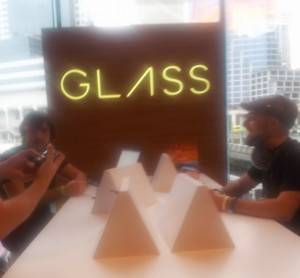Have you thought about what the future for children with autism will look like?
10 years ago, tablets and iPads were not a part of the picture. Now it’s a part of everyday life for a lot people. I use my own tablet when I work with children on the autism spectrum and they love using educational apps that were made for them.
It’s becoming more and more difficult to remember what life was like without the modern technology we have in our lives today with tablets and cell phones.
I was lucky to be invited to a Behind The Scenes Tour of the TED 2014 Conference happening this week. TED is a nonprofit dedicated to ‘Ideas Worth Spreading’.
You may know TED has been involved in ideas worth spreading about autism, thanks to Temple Grandin’s talk: The World Needs All Kinds of Minds and many other autistic people and advocates who have taken the stage.
New technology and innovation from big companies were being featured at the conference including Google Glass. Google Glass is wearable technology that allows someone wear the device as special glasses. It is a wearable computer with an optical head-mounted display. It allows you to record video, take a photo, dictate commands all from a device on your head and all built into a narrow frame that spans the face from ear to ear.
An autism mom, Delsa Darlene, in Florida has been able to use Google Glass when she won a contest to be an early “Google Glass explorer”. She has been using Google Glass to capture “raw moments” that could help people distinguish between a meltdown and a tantrum, and to give them hope that there are many positive moments with children on the autism spectrum.
Parents capturing video using the Google Glass device is just one way this device can be used. Tablets and iPads have played a big role in autism therapies and education with a multitude of autism apps available. I’ve already seen my 10 year old autistic cousin treat his iPad like a best friend.
Remember when the iPad first came out? Many people thought it was a gimmick. Why would we need a giant cell phone that can’t make any calls? Today, it’s hard to find a child with autism that hasn’t used these technologies.
There is sure to be skepticism when Google Glass becomes available in store. It is still in development phase but imagine what life will be like with the new Google Glass when (or if) it hits the mainstream.
 What are your thoughts on Google Glass for autism? Are you reluctant to see this change or are you excited about the possibilities of enhancing the lives of those with autism and their families?
What are your thoughts on Google Glass for autism? Are you reluctant to see this change or are you excited about the possibilities of enhancing the lives of those with autism and their families?

